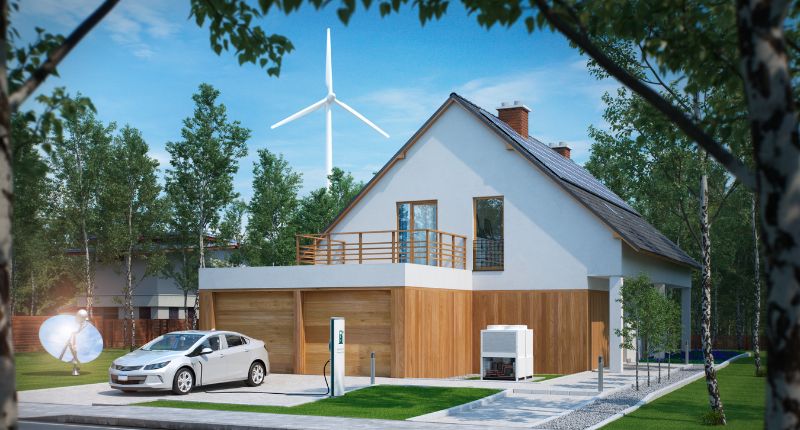
- Australians prioritise energy efficiency amid cost-of-living crisis.
- Survey finds 68% value energy efficiency, with renters showing higher concern.
- Nationwide Energy Rating Scheme expanded, new homes require 7-star rating.
Australians have been increasingly prioritising energy efficiency to reduce energy bills as the nation continues to be gripped by a cost-of-living crisis, according to PropTrack’s latest Energy-Efficient Housing Report.
The report compiled data from over 10 million Australians using realestate.com.au every month, using data from the September 2023 Residential Audience Pulse Survey.
In particular, the study examined the supply and demand of energy efficiency ratings and features across the nation.
Why the spotlight on energy-efficient homes?
Energy-efficient standards were a recent development in Australia. The first energy efficiency requirements were added to the Building Code of Australia in 2003, applying initially to new houses and, later, to units in 2010.
In other words, houses made prior to 2003 were not subject to these minimum requirements, and likely not energy efficient.
Energy-efficient homes have a host of benefits. Generating electricity using solar panels can help shave off substantial amounts of your energy bill. Double-glazed windows and quality insulation retain more warmth, making you less reliant on heating appliances.
Finally, they can help lower emissions as the nation gradually moves towards renewable energy sources.
“Australians are becoming more interested in improving the energy efficiency of their homes as the higher cost of energy usage and concerns about climate change weigh on their minds,” said PropTrack senior analyst and report writer, Karen Dellow.
“Residential buildings are responsible for around 24% of overall electricity use and more than 10% of total carbon emissions in Australia, so improving the energy efficiency of new and existing properties could also reduce the country’s emissions.”
Property seekers prize energy efficiency
More than two-thirds, or 68%, of the survey’s respondents said that energy efficiency ratings were important when buying, renting, or building a property. On the other hand, 34% of respondents believed energy ratings were extremely important, 6% up from last year.
Energy efficiency was more important for renters (44%) compared to buyers (29%) and people building their own homes (35%).
How important are energy efficiency ratings in your decision-making when buying / renting / building?

With the nation’s rents marching upward, it was unsurprising that renters have been most concerned with reducing costs.
National weekly asking rents
Moreover, 73% of survey respondents indicated that they were mainly interested in energy efficiency ratings to reduce energy bills.
Why are energy efficiency ratings important to you?

Doing good for the environment was the second highest concern at 51%, although this was a 6% decrease from the year before.
What the future holds for energy-efficient ratings
The Australian government recently expanded the Nationwide Energy Rating Scheme (NatHERS), which will now provide a ‘Whole of Home’ energy performance rating. This predicts a home’s annual energy needs, considering major fixed appliances, solar, and batteries.
Furthermore, new homes must attain a 7-star NatHERS rating and stay within an annual energy use budget for the whole home.
The changes kicked off in October 2023 and are expected to save new homes an average of $189 annually, along with reducing energy demand and emissions.
“Initiatives like NatHERS improve the energy efficiency of Australia’s homes and help property seekers save money while reducing their overall carbon footprint,” Dellow said.







